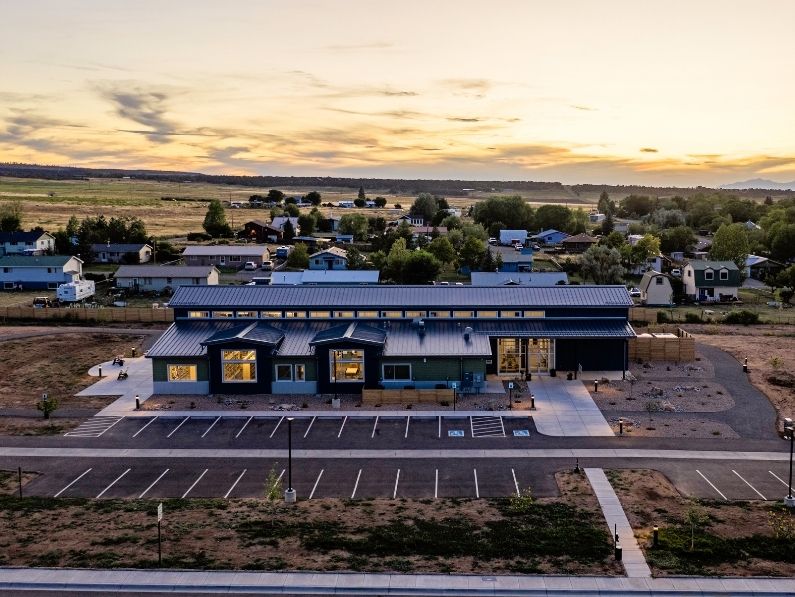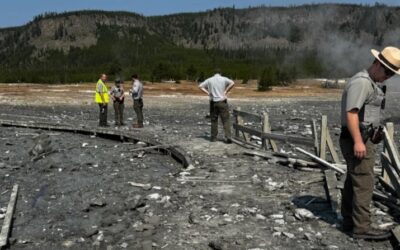Carrie Andrew has a problem with her 2020 budget.
“This year it looks like we’re going to be $51,000 short,” she said.
Andrew is the director of the Lone Cone Library in Norwood in San Miguel County. A large part of that shortfall, County officials say, is due to a delay in tax payments from Paradox Resources, an oil and gas company that operates in the County. Their 2019 taxes were due by April 2020. The money helps fund local tax districts like the library. But, the company didn’t pay when they were supposed to. By late 2020, they owed over a quarter-million dollars in 2019 taxes.
Jan Stout, County Treasurer and Public trustee responsible for tax collection, says that’s a “relatively significant amount.”
The Coronavirus pandemic is one of the reasons Paradox wasn’t able to pay the taxes on time, according to Todd Brooks, the company’s CEO.
“Pandemic combined with–and probably caused, but combined with–super naturally low product prices,” he said.
Eventually, Paradox was able to enter into an agreement with the County to pay off the taxes in installments. But under that plan, the full amount won’t be paid off until December 2021.
And if Paradox will still be paying off the 2019 taxes in late 2021, Brooks says he’s confident that the company won’t also fall behind on its 2020 taxes.
“Barring catastrophes, I feel the company is in a good place,” he said
Paradox is a private company and didn’t provide any documentation about its financial health.
Mary Ellen Denamie is more skeptical. She’s an accredited petroleum accountant and a master analyst in financial forensics. She’s helped Colorado counties collect oil and gas taxes for over a decade.
“I mean they might be able to find an investor that will keep them running. But that’s usually the first sign,” Denamie said regarding the Paradox situation. “When they can’t pay their taxes, they don’t have the money to keep functioning.”
In response to Denamie’s comments, Walter Daniel, Vice President and Senior Counsel for Paradox notes the company is confident its business plan will generate enough revenue to pay all taxes. But, he also adds “there are a lot of variables that are outside of our control. We are trying our best.”
Denamie points to Ursa, a natural gas drilling company operating in other parts of the state that owed over $6 million in overdue taxes to Colorado counties when it filed for Chapter 11 bankruptcy in September.
That’s an extreme example. There hasn’t been a wave of similar bankruptcies. But it has been a hard year for other Western Slope producers, according to Chelsie Miera. Miera is the Executive Director of the West Slope Colorado Oil and Gas Association. 2020, she says, has been a rollercoaster for the industry.
“It’s definitely been a hardship for many of our operators over here,” Miera said.
Denamie sees the potential for choppier waters ahead. 2021, she predicts, could be even worse for producers than 2020 if demand doesn’t improve. This year, she notes, support from the federal government was key for a lot of producers.
“A lot of that money went into the companies to keep them afloat for this year,” Denamie said. “That’s like gone and done. So April of this coming year might be even worse than it was last year.”
That kind of disruption could have a huge impact in Colorado. According to a 2019 report by the Colorado Oil and Gas Association, as of 2017, the industry was responsible for $13.5 billion dollars of Colorado’s GDP and $1 billion in taxes.
Denamie thinks Colorado should develop a rainy day fund for oil and gas tax revenue that collects money in good years to reduce the impact of bad years. Other States, such as New Mexico and Oklahoma, have similar funds.
But, in Colorado, the Taxpayer Bill of Rights, or TABOR, prevents that. Under TABOR, governments have to return any excess revenue to taxpayers, rather than save it.
So, for now, local tax districts just have to plan around the revenue uncertainty. Carrie Andrew says the Lone Cone library is budgeting more conservatively.
“Those are real things we’re looking at: cutting programming, cutting materials and resources that we provide, and cutting hours that we’re open,” she said.
A chain of uncertainty connects the fate of oil and gas in the ground to a library book on a shelf. But, over the months this story has played out, at least one thing has become a little less uncertain. According to Jan Stout, San Miguel County Treasurer and Public Trustee, in the fall, Paradox paused their installments and requested a new payment plan that pushed back the original timeline. Now, instead of being paid off in December 2021, the taxes won’t be paid off until April 2022, two years after they were first due.





